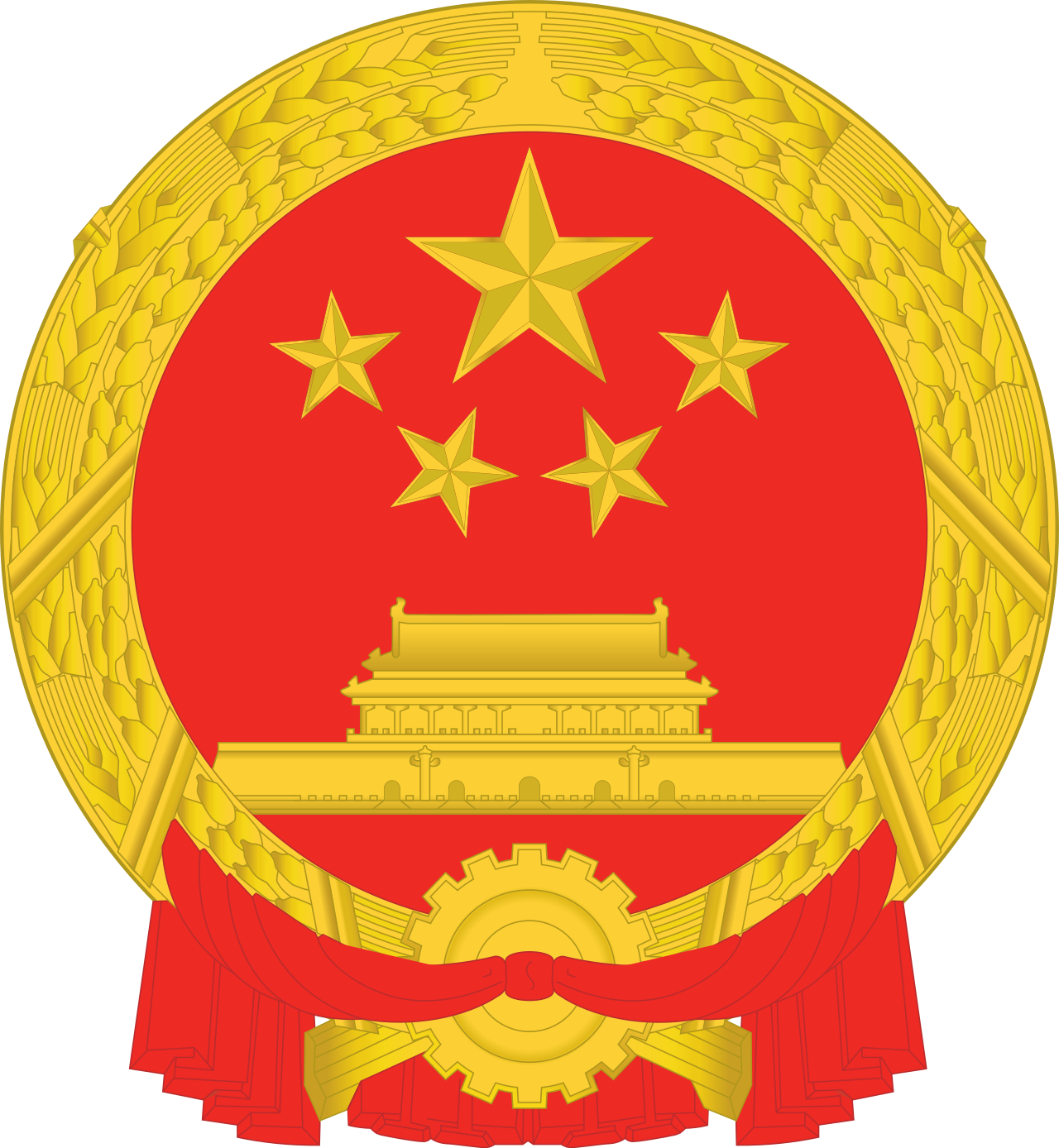
David Warsh: Prepare for multigenerational contest between China and the West
China’s national emblem
SOMERVILLE, Mass.
China is building missile silos in the Gobi Desert. The U.S. has agreed to provide nuclear-submarine technology to Australia, enraging the French, who are building a dozen diesel subs that they had expected to sell to the Aussies. Xi Jinping last week rejected Joe Biden’s suggestion that the two arrange a face-to-face meeting to discuss their differences. Clearly, the U.S. “pivot” to the Pacific is well underway. Taiwan is the new hotspot, not to mention the Philippines and Japan.
The competition between China and the West is a contest, not a cold war. Financial Times columnist Philip Stephens was the first in the circle of those whom I read to make this point. “The Soviet Union presented at once a systemic and an existential threat to the West,” he wrote. “China undoubtedly wants to establish itself as the world’s pre-eminent power, but it is not trying to convert democracies to communism….” The U.S. is not trying to “contain” China so much as to constrain its actions. He continued,
Beijing and Moscow want a return to a nineteenth century global order where great powers rule over their own distinct spheres of influence. If the habits and the institutions created since 1945 mean anything, it has been the replacement of that arrangement with the international rule of law.
I’m not quite sure what Stephens means by “the international rule of law.” The constantly changing Western traditions of freedom of action and thought? Is it true, as George Kennan told Congress in 1972, that the Chinese language contains no word for freedom? Is it possible that Chinese painters produced no nudes before the 20th Century?
The co-evolution of cultures between China and the West has been underway for 4,000 years, proceeding at a lethargic pace for most of that time. While the process has recently assumed a breakneck pace, it can be expected to continue for many, many generations before the first hints of consensus develop about a direction of change.
A hundred years? Three hundred? Who knows? Already there is conflict. There may eventually be blood, at least in some corners of the Earth. But the world has changed so much since 1945 that “cold war” is no longer a useful apposition. The existential threat today is climate change.
China’s cultural heritage is not going to fade away, as did Marxist-Leninism. The script of that drama, written in Europe in the 19th Century, has lost much of its punch. Vladimir Putin has embraced the Russian Orthodox Church as a source of moral authority. Xi Jinping has evoked the egalitarian idealism of Mao Zedong in cracking down on China’s high-tech groups and rock stars, and strictly limiting the time its children are allowed to play video games.
But what is the Western tradition of “rule of law” that presumes to become truly international, eventually? Expect an answer some other day. Meanwhile, I’m cooking pancakes for my Somerville grandchildren.
David Warsh, a veteran columnist and an economic historian, is proprietor of Somerville-based economicprincipals.com, where this essay first appeared.
PCFR speakers from far and wide
Speakers at the 2014-15 season of the Providence Committee on Foreign Relations (thepcfr.org) were:
Anders Corr, a geopolitical analyst and former Defense Department official in Afghanistan, on Chinese expansionism.
Richard George, former high National Security Agency official, on international cyber-security.
Prof. Evodio Kalteneker, on the Brazilian economy and politics.
Professor and journalist Janet Steele on democratic Indonesia.
Jennifer Yanco, a public-health expert and a director of the West Africa Research Association, on the Ebola crisis.
Australian Consul Gen. Nick Minchin, on his nation’s relations with Asia and the U.S.
Delphine Halgand, a high official of the Paris-based Reporters Without Borders, on threats to free speech and journalism. (She spoke a few days after the Charlie Hebdo massacre.)
Amir Afkhami, M.D., a psychiatrist, on dealing with mental illness in war zones, particularly the Mideast.
Military historian and retired Army Colonel Andrew Bacevich on why America should stop fighting wars in the Mideast.
Famed Canadian journalist Diane Francis on why the U.S. and Canada should consider merging.
International landscape architect Thomas Paine on making cities more humane, especially in China.
Admiral Robert Girrier, deputy chief of the U.S. Pacific Fleet, on countering Chinese expansion in the South China Sea.
Gary Hicks, deputy chief of mission in Libya at the time of the Benghazi attack and now at the Center for Strategic and International Studies on lessons for the U.S. in Libya and the future of international trade.
The new season looks exciting too. (And maybe even useful for investing decisions.)
We’re still penciling in speakers and dates, but we can say that Cuban-American businessman and civic leader Eduardo Mestre will speak on Sept. 30 about the reopening of diplomatic relations between the U.S. and the land of his birth.
Mr. Mestre is a member of the boards of the International Rescue Committee and the Cuba Study Group.
He’s also a senior adviser at Evercore and was previously vice chairman of Citigroup Global Markets and chairman of its Investment Banking Division. Before then, he headed investment banking at Salomon Smith Barney and its predecessor firms from 1995-2001 and was co-head of Salomon Brothers' mergers and acquisitions department in 1989-1995.
Skedded for Oct. 22 is Scott Shane, the New York Times reporter who wrote the new book Objective Troy, about Anwar al-Awlaki, “the once-celebrated American imam who called for moderation after 9/11, but a man who ultimately directed his outsized talents to the mass murder of his fellow citizens’’ and was eventually killed by an American drone. Among other things, he’ll discuss the moral issues raised by the increasing use of drones.
Some of the people we have on the drafting board for the rest of the season:
A U.N. expert on international refugee crises; a journalist or diplomat who will discuss the Greek crisis; a member of the Federal Reserve Board who will discuss international financial-system challenges; a Japanese journalist to talk about that nation’s increasingly muscular regional posture; an expert on international shipping in light of the widening of the Panama Canal; a status report on Mexico; a Chinese philanthropist; a member of the Ukrainian Congress Committee; (we have been trying for some time to get a Russian official or journalist to give Moscow’s side of the war in eastern Ukraine), and the director of the Aga Khan University Media School to talk about training journalists in the Developing World
All subject to change. We frequently repeat Prime Minister Harold Macmillan’s purported response when he was asked what he most feared:
“Events, my dear boy, events.’’
Members should feel free to chime in with suggestions.
Also, we’ll strive to frequently update the PCFR Website with supplemental news and commentary on international matters that may be of interest.
Please consult www.thepcfr.org or message pcfremail@gmail.com for questions about the PCFR.
Enjoy the rest of the summer!
Robert Whitcomb, chairman
pcfremail@gmail.com

